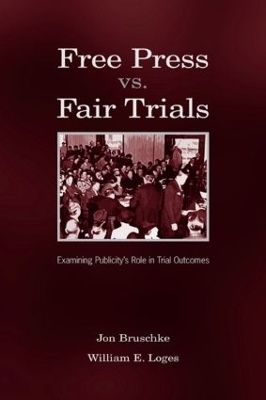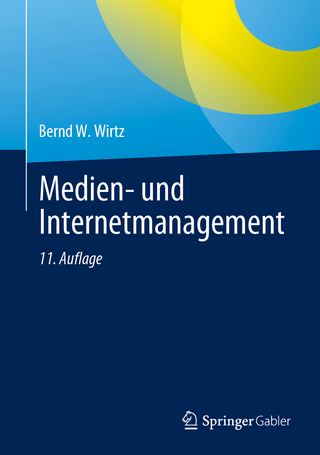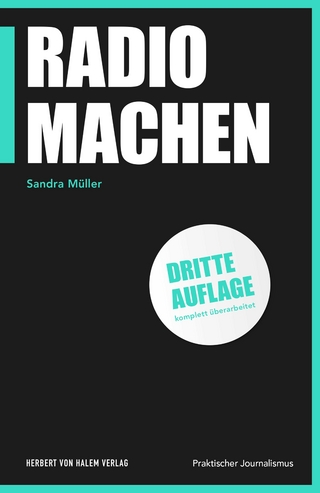
Free Press Vs. Fair Trials
Examining Publicity's Role in Trial Outcomes
Seiten
2003
Routledge (Verlag)
978-0-8058-4325-5 (ISBN)
Routledge (Verlag)
978-0-8058-4325-5 (ISBN)
A review of existing social science research concerning pretrial publicity that incorporates media theory and original field research and comes to the conclusion that fears of pretrial publicity are overstated.
Current research on media and the law has generally been atheoretical and contradictory. This volume explains why pretrial publicity is unlikely to affect the outcome of most jury trials, despite many experimental studies claiming to show the influence of publicity. It reviews existing literature on the topic and includes results from the authors' own research in an effort to answer four questions:
*Does pretrial publicity bias the outcome of trials?
*If it has an effect, under what conditions does this effect emerge?
*What remedies should courts apply in situations where pretrial publicity may have an effect?
*How does pretrial publicity relate to broader questions of justice?
Reporting research based on actual trial outcomes rather than on artificial laboratory studies, Free Press vs. Fair Trials examines publicity in the context of the whole judicial system and media system. After a thorough review of research into pretrial publicity, the authors argue that the criminal justice system's remedies are likely to be effective in most cases and that there are much larger obstacles confronting defendants than publicity.
This book presents the first extensive study of the influence of pretrial publicity on actual criminal trials, with results that challenge years of experimental research and call for more sophisticated study of the intersection of media and criminal justice. It is required reading for scholars in media law, media effects, legal communication, criminal justice, and related areas.
Current research on media and the law has generally been atheoretical and contradictory. This volume explains why pretrial publicity is unlikely to affect the outcome of most jury trials, despite many experimental studies claiming to show the influence of publicity. It reviews existing literature on the topic and includes results from the authors' own research in an effort to answer four questions:
*Does pretrial publicity bias the outcome of trials?
*If it has an effect, under what conditions does this effect emerge?
*What remedies should courts apply in situations where pretrial publicity may have an effect?
*How does pretrial publicity relate to broader questions of justice?
Reporting research based on actual trial outcomes rather than on artificial laboratory studies, Free Press vs. Fair Trials examines publicity in the context of the whole judicial system and media system. After a thorough review of research into pretrial publicity, the authors argue that the criminal justice system's remedies are likely to be effective in most cases and that there are much larger obstacles confronting defendants than publicity.
This book presents the first extensive study of the influence of pretrial publicity on actual criminal trials, with results that challenge years of experimental research and call for more sophisticated study of the intersection of media and criminal justice. It is required reading for scholars in media law, media effects, legal communication, criminal justice, and related areas.
Jon Bruschke, William Earl Loges
Contents: Foreword. Preface. Introduction. What We Think We Know. Field Research. Pretrial Publicity and Media Theory: "General" Publicity Revisited. Conclusions. Appendix: Detailed Discussion of City-Level Data.
| Erscheint lt. Verlag | 13.12.2003 |
|---|---|
| Reihe/Serie | Routledge Communication Series |
| Verlagsort | New York |
| Sprache | englisch |
| Maße | 152 x 229 mm |
| Gewicht | 540 g |
| Themenwelt | Recht / Steuern ► EU / Internationales Recht |
| Sozialwissenschaften ► Kommunikation / Medien ► Journalistik | |
| ISBN-10 | 0-8058-4325-6 / 0805843256 |
| ISBN-13 | 978-0-8058-4325-5 / 9780805843255 |
| Zustand | Neuware |
| Haben Sie eine Frage zum Produkt? |
Mehr entdecken
aus dem Bereich
aus dem Bereich


